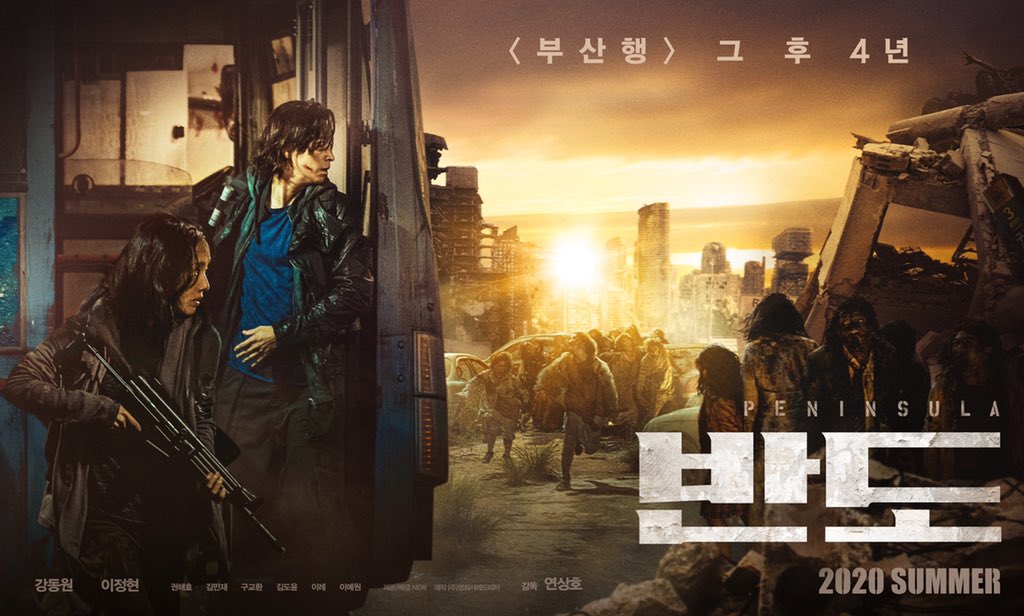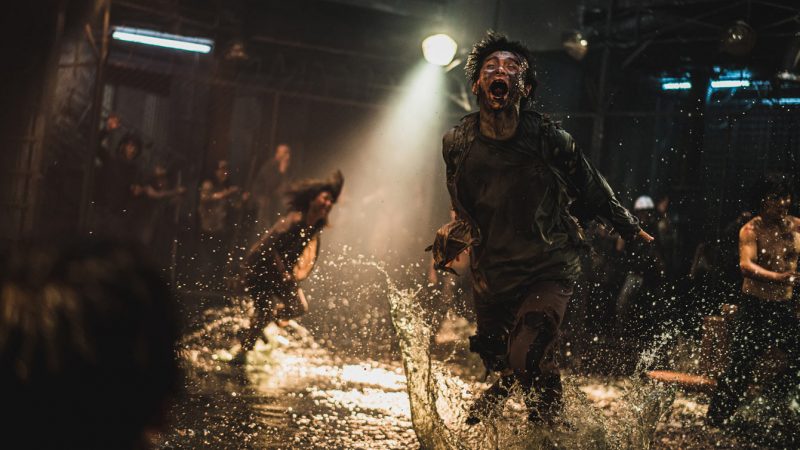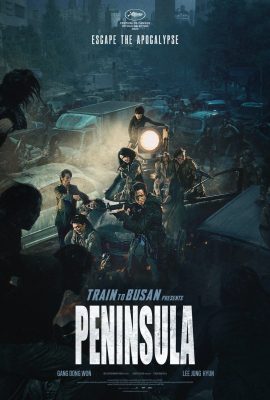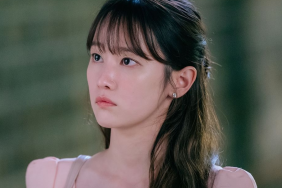Rating:
7.5/10
Cast:
Gang Dong-won as Jung-seok
Lee Jung-hyun as Min-jung
Lee Re as Jooni
Kwon Hae-hyo as Old Man Kim
Lee Ye-won as Yu-jin
Kim Do-yoon as Chul-min
Kim Min-jae as Sergeant Hwang
Koo Kyo-hwan as Captain Seo
Written and Directed by Yeon Sang-ho
Train to Busan Presents: Peninsula Review:
After delivering one of the best and most-compelling zombie films ever with 2016’s blockbuster hit Train to Busan, South Korean director Yeon Sang-ho is making his comeback this year with a brand-new horror film set within the first film’s universe. Peninsula has maintained the original’s exhilarating sequences which sets up another potential international success for Yeon. However, this time, the film had struggled to find the right balance between the action and the narrative. Despite bringing the action to a higher scale, this highly-anticipated sequel doesn’t quite stick the landing and has lost the special spark that the original film had.
In the film, four years has passed since the prosperous and advance country of South Korea had faced its untimely demise due to a zombie outbreak that swept throughout its peninsula, leaving it as an unsalvageable wasteland. The sequel centers around a former soldier named Jung-seok, who is one of the fortunate people that were able to escape the apocalypse and is now a refugee in Hong Kong. However, despite surviving the horror, he remains to live in grief and guilt for not being able to save his entire family. Jung-seok along with other three Korean refugees including his estranged brother-in-law Chul-min have been tasked by a group of Hong Kong gangsters to go back to their country to retrieve bags of cash containing millions of U.S. dollars. When the four of them have successfully arrived to their destination, they’ll soon realize that the zombies are not their only problem. With the unexpected arrival of survivors, who have already fully-adapted with the challenges of their new world, Jung-seok and his team will get to see first-hand the best and worst of human nature.
Unlike the first one, Peninsula doesn’t take place in one day which I think is intentional in order to accommodate its large scale and expanding story. Even though the sequel isn’t exactly a follow-up to the first one, it still offers more insight on the events that happened during and after the outbreak which will give the audience an idea on what happened to the two surviving characters of the first film, who we’ve last seen safely arriving in Busan. Through this sequel, we get to learn that unfortunately there is really no safe place in Korea and that the disease was contained within the country.
Director Yeon found a way to set his film apart from other zombie films by not taking the outbreak to a global scope. Because of this, it allowed the film to portray problems that are parallel to real-life experiences concerning refugees and people who weren’t lucky enough to escape worst environments. In this film, we can see that the rest of the world are still enjoying a normal life while survivors left in Korea are already living an unimaginable post-apocalyptic world. This aspect of the story is actually one of the interesting things about it.
Like the original, this film has effectively combined a popular horror genre with a very humane story that explored different sides of human nature in the face of adversity. Despite that, Yeon’s sequel sadly wasn’t able to surpass expectations regarding its storytelling and character developments. I know Train to Busan is a hard feat to follow but it’s still underwhelming to see that the sequel has failed to replicate the same compelling story as the first film.
Peninsula was led by award-winning actors’ Gang Dong-won and Lee Jung-hyun with Gang taking over the male lead role from Train to Busan’s Gong Yoo. Interestingly, the 40-year-old actor was born in Busan and has starred in a number of popular Korean films like Too Beautiful to Lie and Secret Reunion. However, Gang Dong-won’s portrayal of Jung-seok is admittedly not his best performance. His character lacks the power and charisma that the first film’s lead had showcased. Despite both playing flawed characters, Gang’s Jung-seok wasn’t able to fully-represent a person that is worthy of redemption which would make viewers sympathize or root more for Gong Yoo’s portrayal of a workaholic father.
Even though the sequel’s cast didn’t provide a dynamic ensemble performance just like Train to Busan’s cast, who had made us engrossed in each of their characters’ survival, the sequel has still managed to produce standout performances coming from Lee Jung-hyun’s Min-jung and the child actresses who portrayed her character’s daughters, Lee Re and Lee Ye-won. In the film, their characters were three of the survivors who weren’t able to escape and were left to fend for themselves. I personally think that director Yeon should have focus the story on their characters from the start because these trio would absolutely be everyone’s favorites as they all delivered memorable performances.
I’ve first seen Lee Jung-hyun’s absorbing acting talent in the 2017 film Battleship Island where she gave an incredible portrayal of a comfort woman during the Japanese colonization. Surely enough, she didn’t disappoint and have delivered yet another moving performance as a determined and reliable mother in Peninsula. Despite being supporting characters, Lee Re and Lee Ye-won have easily captivated the audience with their charming and playful performances as Jooni and Yu-jin, who have found a way to enjoy life in a bleak and somewhat hopeless world.
As for its cinematography and set design, director Yeon and the film’s cinematographer Lee Mo-gae have done a good job of fulfilling the promise of taking the action to a whole new level. The thrilling car chase sequences are definitely one of the sequel’s highlights. The best description that I could described it, is like if Fast & Furious is set within The Walking Dead universe. What makes it even cooler is that the sequences are reminiscent of George Miller’s Mad Max: Fury Road which was actually one of the inspirations for director Yeon’s sequel.
However, regardless of the standout performances and suspense-filled action, the sequel’s story-telling and pacing had still felt rush which resulted to faulty character developments. I also think that because of the sequel’s desire to level up the action, it shifted its focused to delivering more action scenes which in the end became a disservice to its story-telling. It had unfortunately loss the intensity and heart that Train to Busan had originally boasted.
Overall, despite my few criticisms about Peninsula, I can’t deny the fact that the sequel is undoubtedly a highly-entertaining movie that everyone would still enjoy. It’s always been a difficult task and a great deal of pressure for directors to make a follow-up film that would surpass its predecessor, especially if it’s a well-received film like Train to Busan. Director Yeon had clearly a tough job and because of that, I still commend him for developing a new horror universe which has unbounded potential for more humane stories. The sequel may not possess the long-lasting impact that Train to Busan had on the audience, but it is still a good addition to the zombie genre.
Peninsula
-
Peninsula

-
Peninsula

-
Peninsula
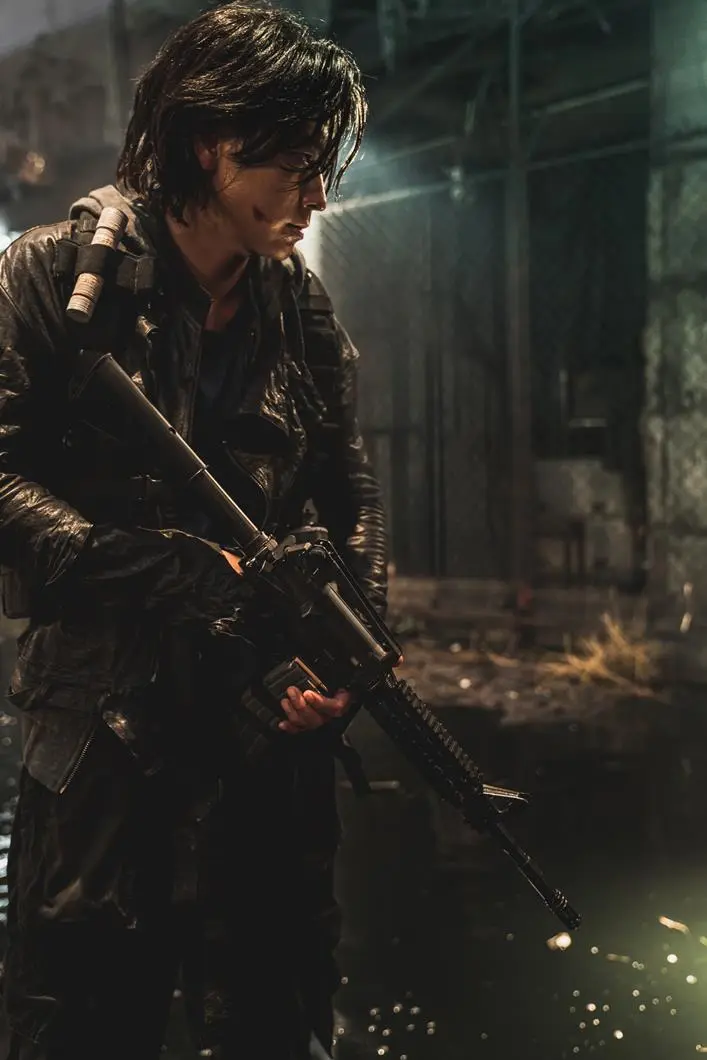
-
Peninsula
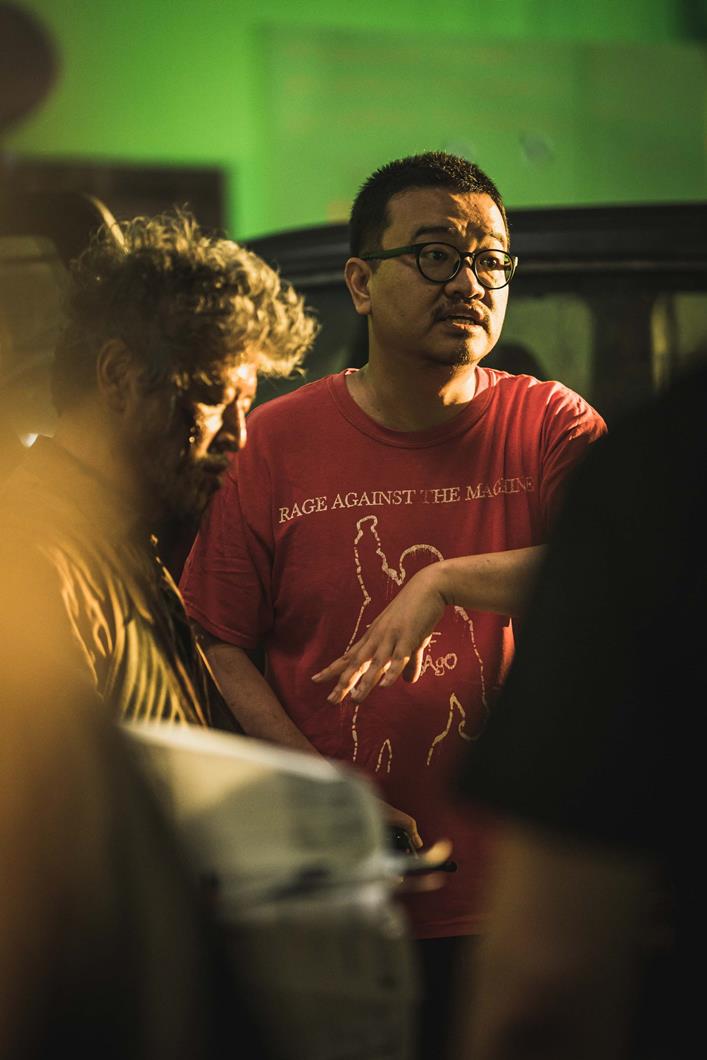
-
Peninsula
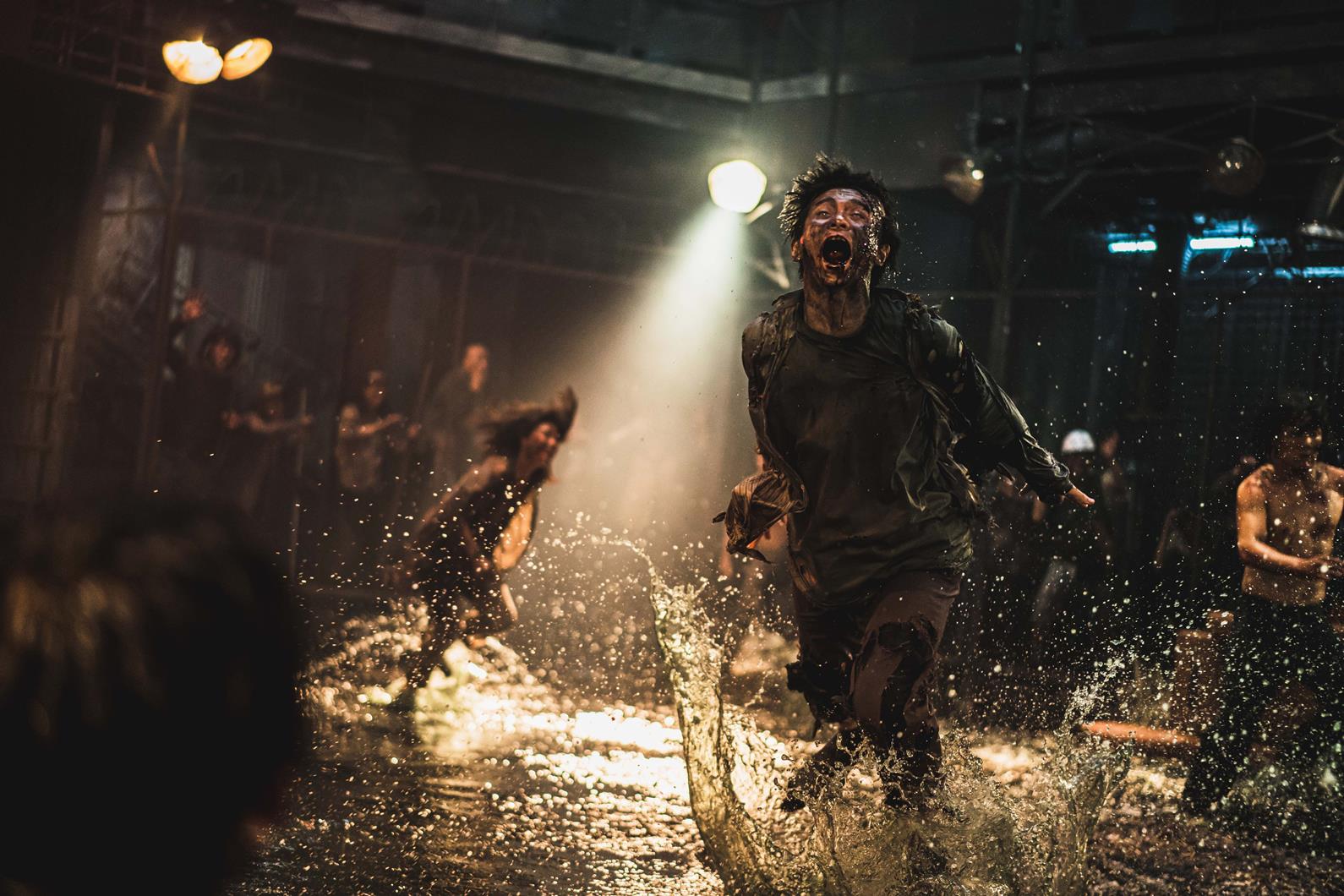
-
Peninsula
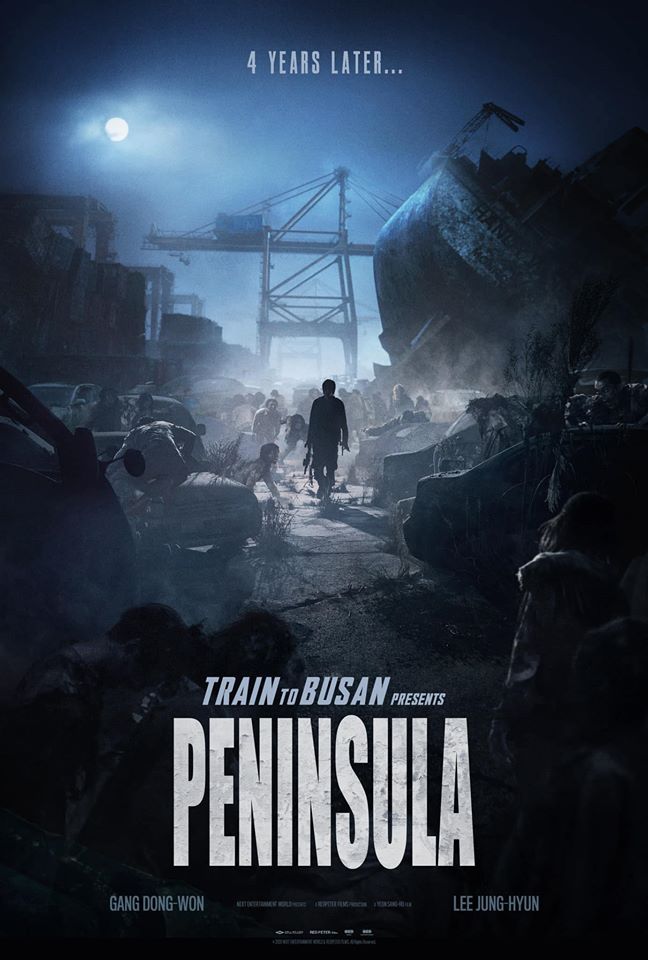
-
Peninsula
